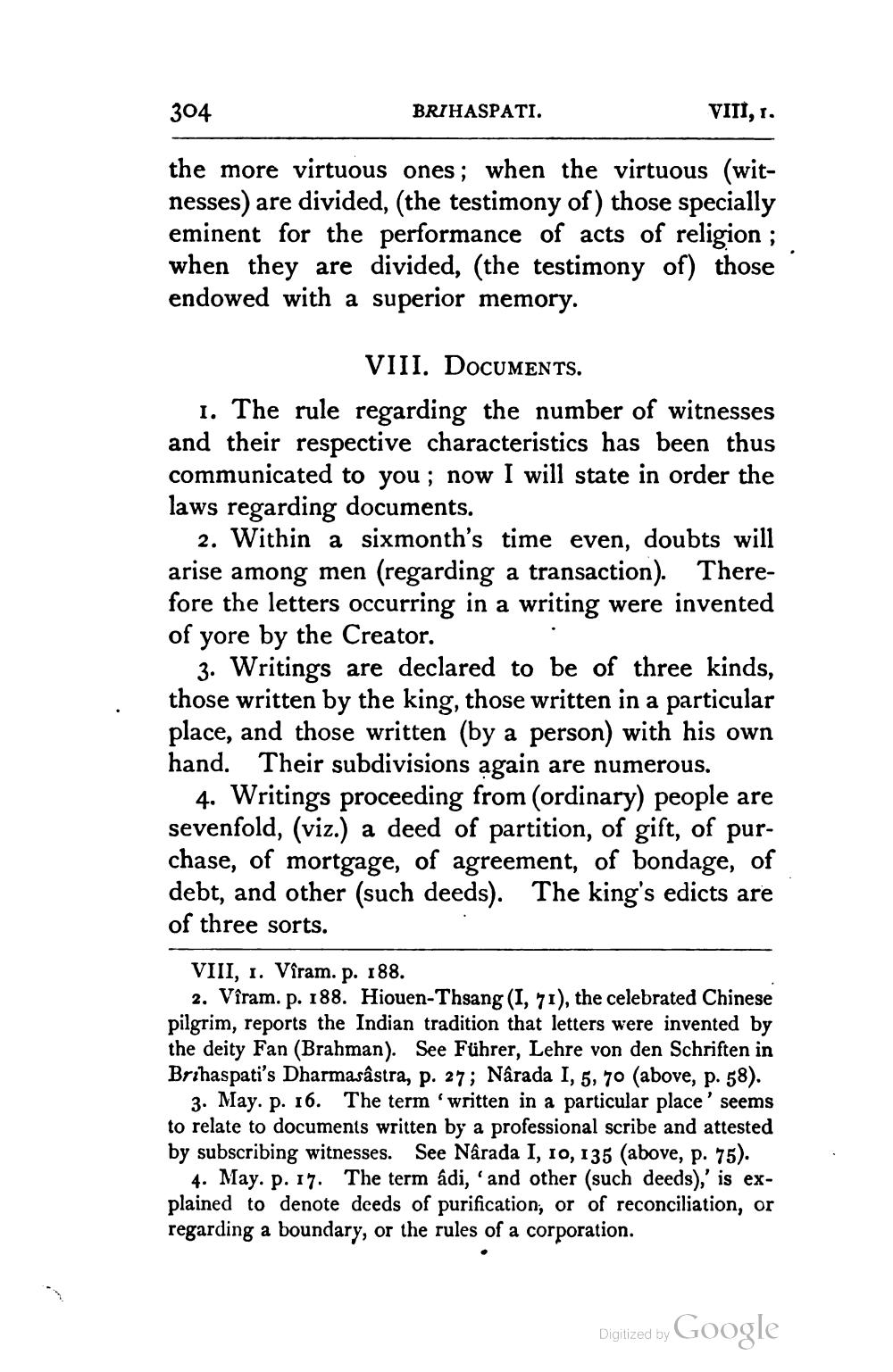________________
304
BRIHASPATI.
VIII, 1.
the more virtuous ones; when the virtuous (witnesses) are divided, (the testimony of) those specially eminent for the performance of acts of religion ; when they are divided, (the testimony of those endowed with a superior memory.
VIII. DOCUMENTS. 1. The rule regarding the number of witnesses and their respective characteristics has been thus communicated to you ; now I will state in order the laws regarding documents.
2. Within a sixmonth's time even, doubts will arise among men (regarding a transaction). Therefore the letters occurring in a writing were invented of yore by the Creator.
3. Writings are declared to be of three kinds, those written by the king, those written in a particular place, and those written (by a person) with his own hand. Their subdivisions again are numerous.
4. Writings proceeding from (ordinary) people are sevenfold, (viz.) a deed of partition, of gift, of purchase, of mortgage, of agreement, of bondage, of debt, and other (such deeds). The king's edicts are of three sorts.
VIII, 1. Viram. p. 188.
2. Vîram. p. 188. Hiouen-Thsang (I, 71), the celebrated Chinese pilgrim, reports the Indian tradition that letters were invented by the deity Fan (Brahman). See Führer, Lehre von den Schriften in Brihaspati's Dharmasastra, p. 27; Nârada 1, 5, 70 (above, p. 58).
3. May. p. 16. The term 'written in a particular place' seems to relate to documents written by a professional scribe and attested by subscribing witnesses. See Narada I, 10, 135 (above, p. 75).
4. May. p. 17. The term ádi, 'and other such deeds),' is explained to denote deeds of purification, or of reconciliation, or regarding a boundary, or the rules of a corporation.
Digitized by Google




